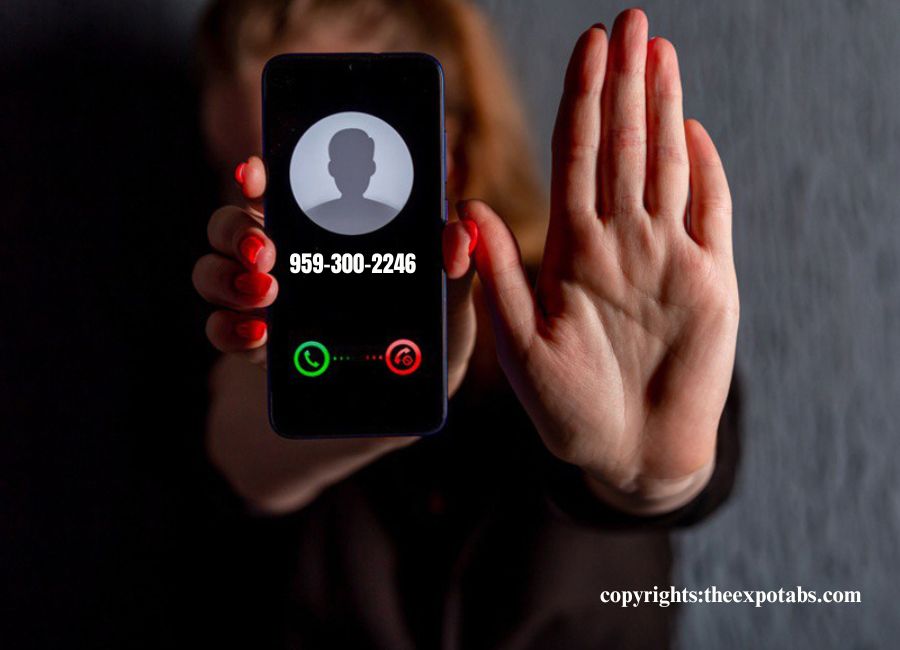Robocalls have turned into a common annoyance for numerous individuals. These automated calls can be disruptive, frustrating, and sometimes even lead to scams. One number that has been popping up frequently is 959-300-2246, causing concern among individuals who are unsure how to handle it. In this article, we will delve into practical steps you can take to protect yourself from the robocalls originating from 959-300-2246, why they are problematic, and what legal protections are available.
What Are Robocalls?
Robocalls are phone calls generated by machines that play recorded messages. While some robocalls are legal, such as those for political campaigns or emergency alerts, many robocalls are scams designed to trick people into providing personal information, making payments, or falling for deceptive tactics. The number 959-300-2246 has been associated with such unwanted calls, and recognizing these calls is the first step in preventing potential harm.
Why Is 959-300-2246 Calling You?
The number 959-300-2246 is known for making robocalls to unsuspecting recipients. These calls may come with various messages, ranging from fake offers to warnings about your credit, loans, or taxes. Often, the caller will claim to represent an official organization, creating a sense of urgency. It’s important to remember that legitimate businesses or government bodies will not typically reach out through automated calls for sensitive matters.
If you receive a call from 959-300-2246, be cautious. Refrain from interacting with the caller or sharing any personal details. Simply hanging up is one of the safest responses to any suspicious call.
Read More: https://theexpotabs.com/animedoqj3fxnevs-cat/
Common Types of Robocall Scams
1. Phishing Attempts
Phishing scams are designed to trick you into providing sensitive information such as your Social Security number, bank details, or passwords. Calls from numbers like 959-300-2246 often use scare tactics or enticing offers to convince you to share this information.
2. IRS Scams
In IRS scams, robocallers claim that you owe back taxes and threaten legal action unless you make an immediate payment. These calls can sound convincing, but it’s important to know that the IRS will never initiate contact over the phone for such matters. Calls from numbers like 959-300-2246 often include this type of scam.
3. Loan Scams
Another common scam involves fake loan offers or threats related to unpaid loans. Robocalls from 959-300-2246 may promise fast loan approvals or claim that you are in default, urging immediate action to resolve the issue.
How to Identify Robocalls From 959-300-2246
Recognizing robocalls is crucial in preventing scams. Here are some common signs that the call you’re receiving is from 959-300-2246 or another robocall number:
- Pre-recorded Message: Most robocalls deliver automated, pre-recorded messages. If you answer and hear a robotic voice, it’s likely a robocall.
- High Pressure: The caller creates a sense of urgency, insisting you must act now or face dire consequences.
- Vague Details: Robocallers often provide little information about themselves or why they’re calling, instead focusing on getting your information.
- Unsolicited Calls: If you are receiving calls from 959-300-2246 and you never signed up for any communication from the company or organization the caller claims to represent, it’s likely a scam.
Effective Ways to Block 959-300-2246 Robocalls
Dealing with robocalls can be frustrating, but there are several ways to reduce or even eliminate calls from numbers like 959-300-2246. Here’s how:
1. Do Not Call Registry
The first step to stop unwanted robocalls is to add your number to the National Do Not Call Registry. This free service prevents telemarketers from contacting you. While this may not stop all robocalls, especially from scammers, it can significantly reduce the number of legitimate marketing calls you receive.
2. Use Call Blocking Apps
Several smartphone apps are designed to block robocalls automatically. Popular apps such as Truecaller, RoboKiller, and Hiya can help block calls from 959-300-2246 and other suspicious numbers. These apps work by identifying known robocall numbers and filtering them before they even reach your phone.
3. Enable Built-in Call Blocking Features
Many smartphones come with options to prevent calls from certain phone numbers. After receiving a call from 959-300-2246, you can block that number directly from your phone settings, preventing future calls from that number.
4. Contact Your Service Provider
Many phone service providers offer robocall protection services. Contact your provider to see if they offer options to block robocalls, and ask about additional measures they can take to stop calls from numbers like 959-300-2246.
What to Do If You’ve Already Answered a 959-300-2246 Call
If you accidentally answered a call from 959-300-2246 or a similar robocall, follow these steps to protect yourself:
1. Hang Up Immediately
If you suspect the call is a robocall, don’t engage. Hanging up as soon as you realize the call is automated or suspicious is the safest option. Engaging with the caller can sometimes result in more frequent calls.
2. Do Not Share Personal Information
Robocallers are often trying to collect your personal information. Never provide personal or financial details over the phone unless you are 100% certain of the caller’s identity.
3. Report the Call
Reporting the call helps authorities track down robocallers and prevent them from targeting others. You can report robocalls from 959-300-2246 to the Federal Trade Commission (FTC) or the Federal Communications Commission (FCC).
Legal Protections Against Robocalls
U.S. law provides several protections against robocalls, including calls from numbers like 959-300-2246. Here are some legal measures in place to protect consumers:
1. The Telephone Consumer Protection Act (TCPA)
The TCPA limits telemarketing calls and the use of automated dialing systems. It requires businesses to obtain consent before making robocalls. If you receive unsolicited calls from 959-300-2246, the caller may be violating the TCPA, and you could be entitled to compensation.
2. The Federal Trade Commission (FTC)
The FTC oversees the Do Not Call Registry and investigates reports regarding robocalls. By reporting calls from 959-300-2246, you are helping the FTC crack down on illegal robocallers.
3. The Federal Communications Commission (FCC)
The FCC oversees robocalls and has the power to impose fines on those who break the rules. Filing a complaint with the FCC is another way to help stop calls from 959-300-2246.
How To Report Robocalls From 959-300-2246
If you receive multiple robocalls from 959-300-2246, reporting them is a key step to stopping these calls. Here’s how you can report unwanted robocalls:
- FTC Complaint Assistant: Visit the Federal Trade Commission’s official website and use their complaint assistant to report unwanted calls. The FTC will look into the situation and take appropriate steps if needed.
- FCC Consumer Complaint Center: The Federal Communications Commission also accepts complaints about robocalls through their Consumer Complaint Center.
- Phone Service Provider: Some service providers have a dedicated line or app to report spam and robocalls.
By reporting the number 959-300-2246, you contribute to broader efforts to crack down on robocalls, helping protect others from similar experiences.
Conclusion
Robocalls from numbers like 959-300-2246 can be more than just an inconvenience; they can lead to financial loss and identity theft if you aren’t careful. To shield yourself from unwanted calls, pay attention to the warning signs of robocalls. Utilize available tools to block these calls and report them to the relevant authorities. This way, you can safeguard yourself and decrease the number of nuisance calls you get. Always remember to be cautious when receiving unsolicited calls, and never share personal information with unverified callers.





